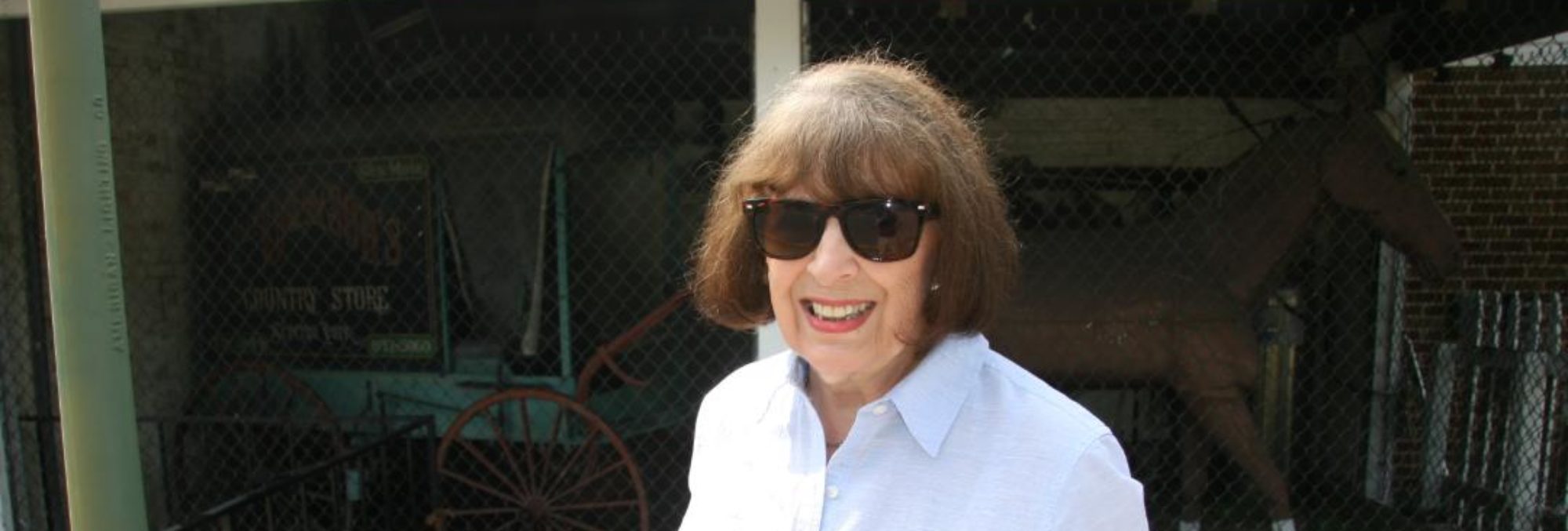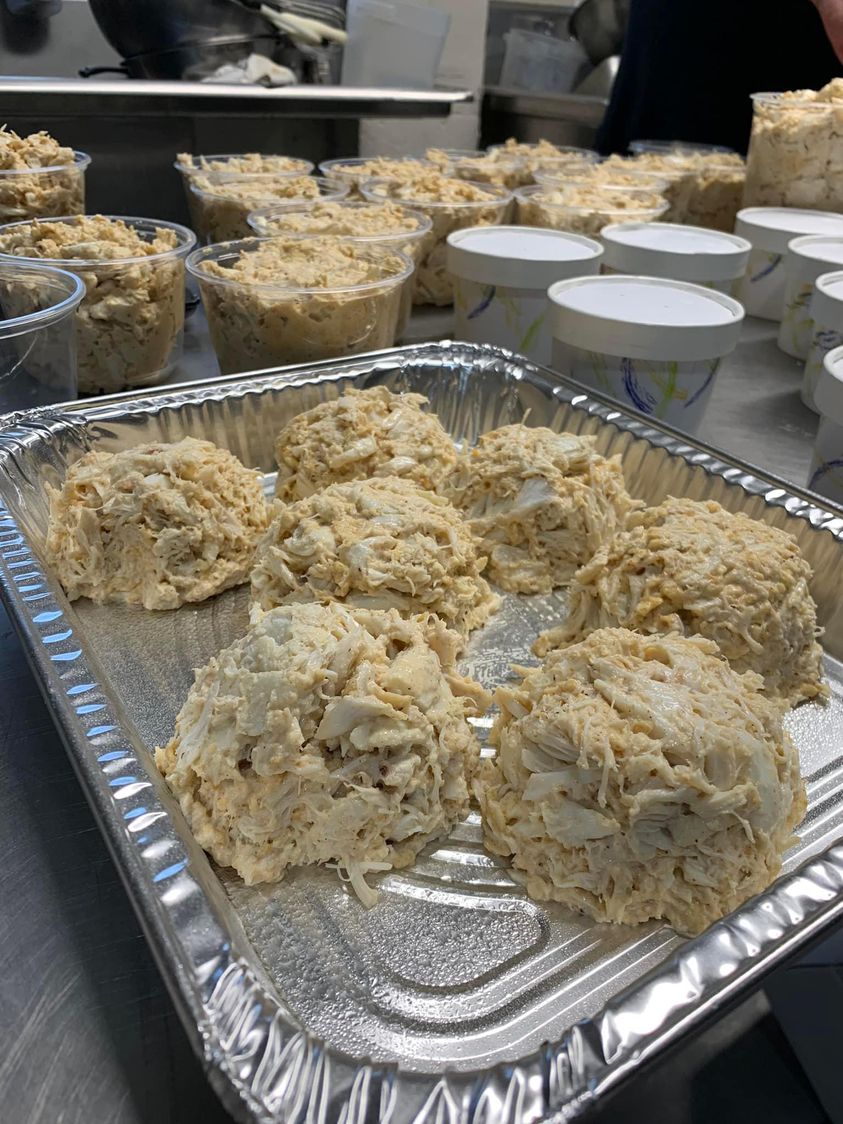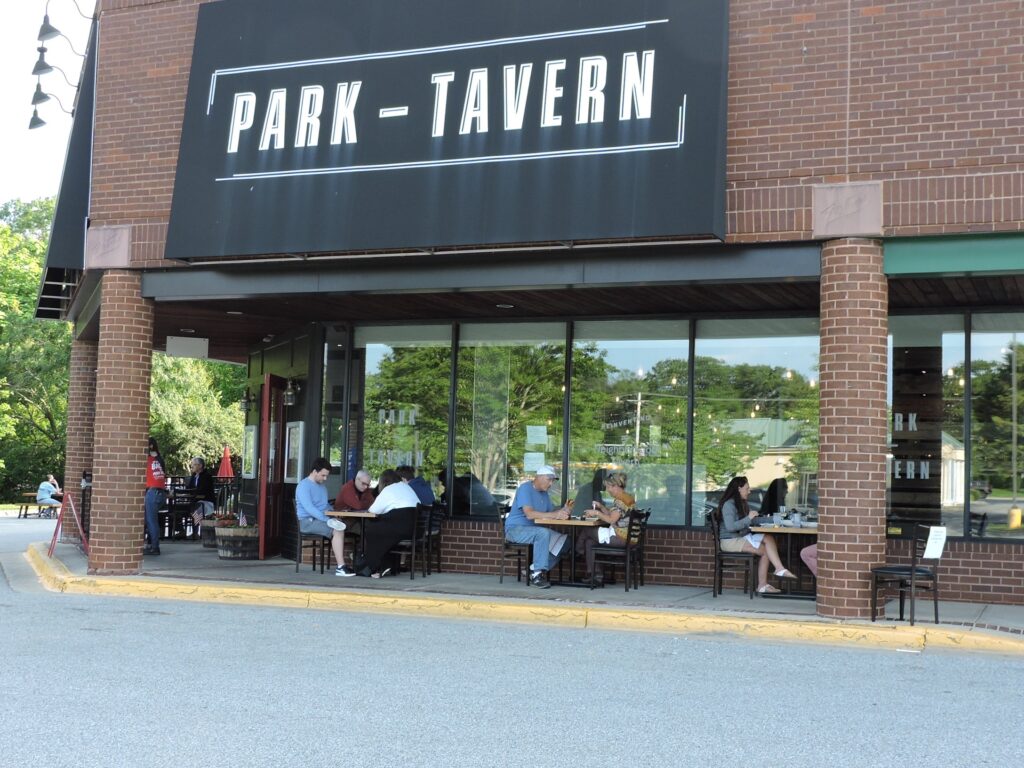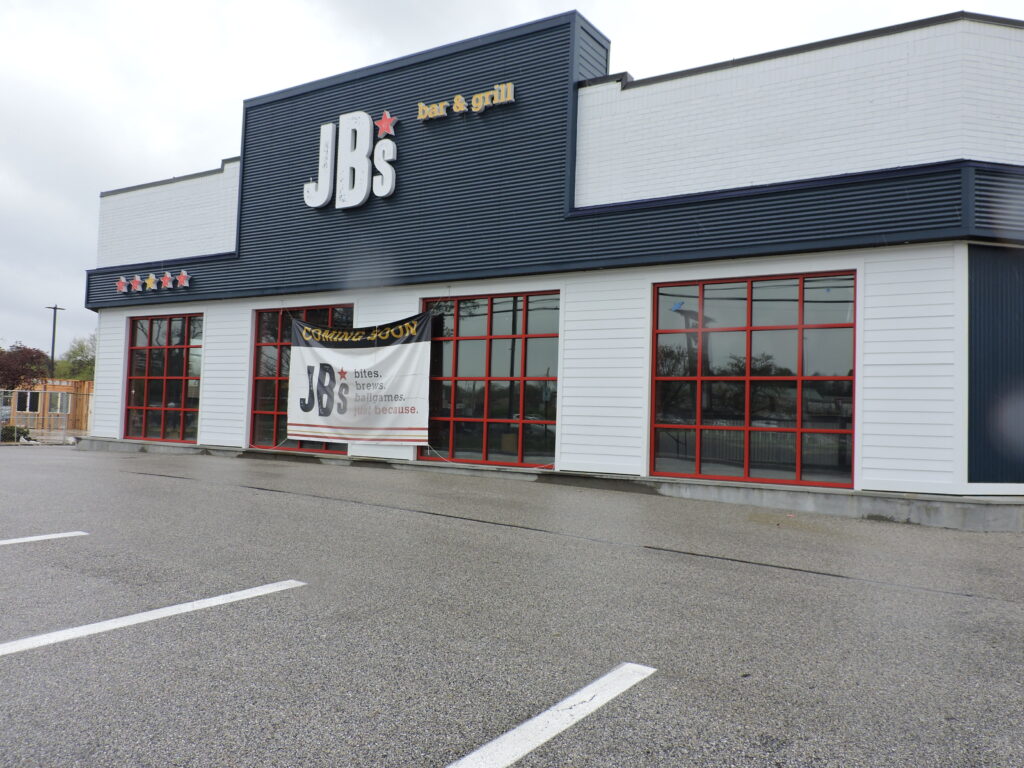AROUND THE PARK AGAIN By Sharon Lee Tegler
Consumers have been shocked by empty shelves in local supermarkets recently but imagine the impact local retailers and restaurateurs are feeling as the products they depend on for their customers are in short supply while prices soar.
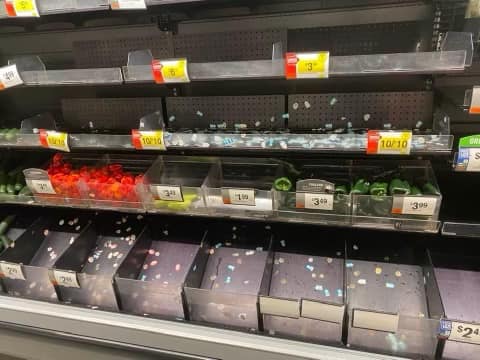
Challenges that began two years ago with Maryland’s first COVID-19 cases resulted in shipping delays at ports, trucking and air transportation problems and labor shortages across all businesses. Particularly hard hit are food service businesses, from restaurants to coffee shops, fast food establishments, bakeries and caterers.
April’s Table owner, April Cunningham, described the difficulties most small independent business owners are having when asked if supply chain problems are affecting her catering business.
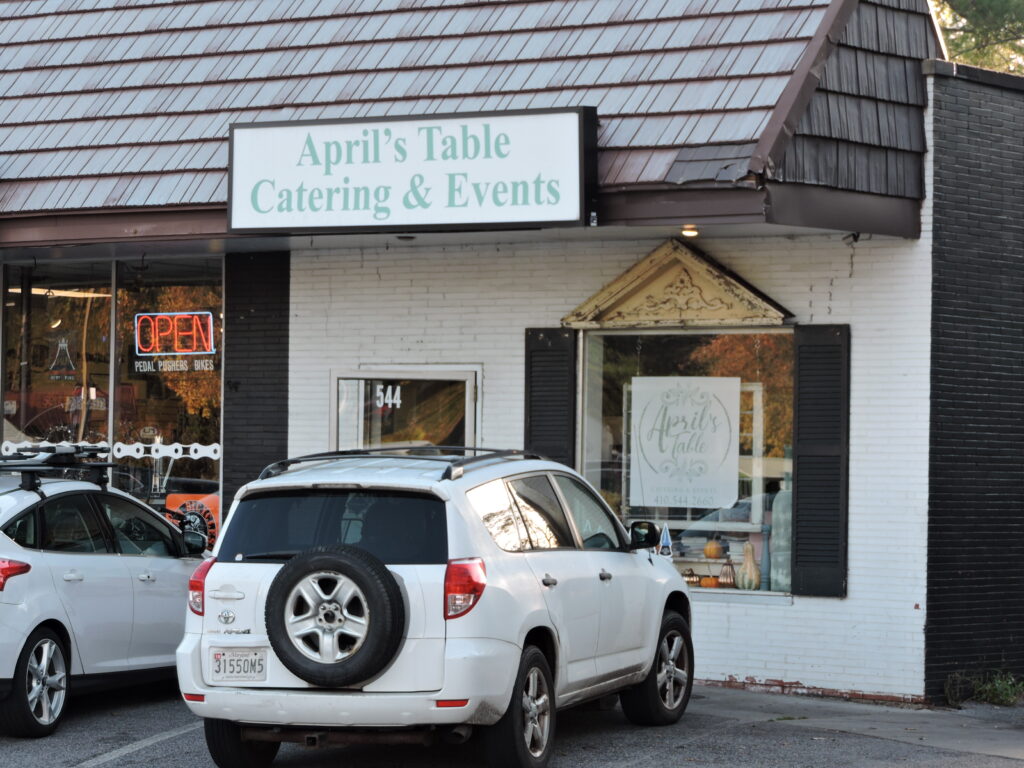
“Yes, we are experiencing supply problems – whether it be specific to certain brands or items, distribution, or quality. It’s all coming into play right now,” Cunningham said. “Even paper products are difficult and hard to come by. The price hikes make it even worse because what we can get our hands on is exponentially more expensive than either what we’ve quoted, or what our clientele have grown accustomed to. I’m certain any food business is having similar trouble.”
We sampled other food related businesses, checking in with Greg Keating, managing partner for the 206 Restaurant Group that owns Park Tavern and JB’s at Park Plaza.
“It’s been challenging for us to get certain items, especially proteins, for quite some time,” Keating said. “But now, the problems we’re facing have more to do with operating supplies – for example carryout containers. The demand for to-go items has been high because of COVID carryout ordering and third-party ordering. That demand dealt a hard hit to the supply chain, meaning we’ve had to adapt to changing materials over time. We’ve been able to weather the problem fairly well but it’s been an on-again, off again challenge for us.”
Asked if inflationary prices for certain items are an issue, he agreed that they are.
“We’ve definitely seen an increase in prices when it comes to proteins, particularly for things like crabmeat and beef,” he said. “We refresh our menus accordingly. We’ve had to take crab off the Park Tavern menu because of the dramatic price rise for crabmeat. It went from $18 per pound two years ago for jumbo lump crabmeat to $49 a pound thirty days ago.”
Keating notes that, all up and down the supply chain, the labor shortages he’s seeing for restaurants are just as challenging for the growers and food manufacturers. Shortages of materials required to grow or produce products are slowing progress. However, he does feel things have eased slightly in the last two months.
For Shipley’s Choice couple Clint and Elizabeth Jones, who own Sizzle Shack and Beach Tables, the going has not been easy.
“Supply chain and inflationary prices have been a major disruption to both our businesses,” Clint Jones said. “For Beach Tables, materials that we need can’t be sourced and limit our production. When we can get our supplies, prices are up at least 20%.”
He added that, for Sizzle Shack, there is no consistency in what he can find in stock for food or packaging.
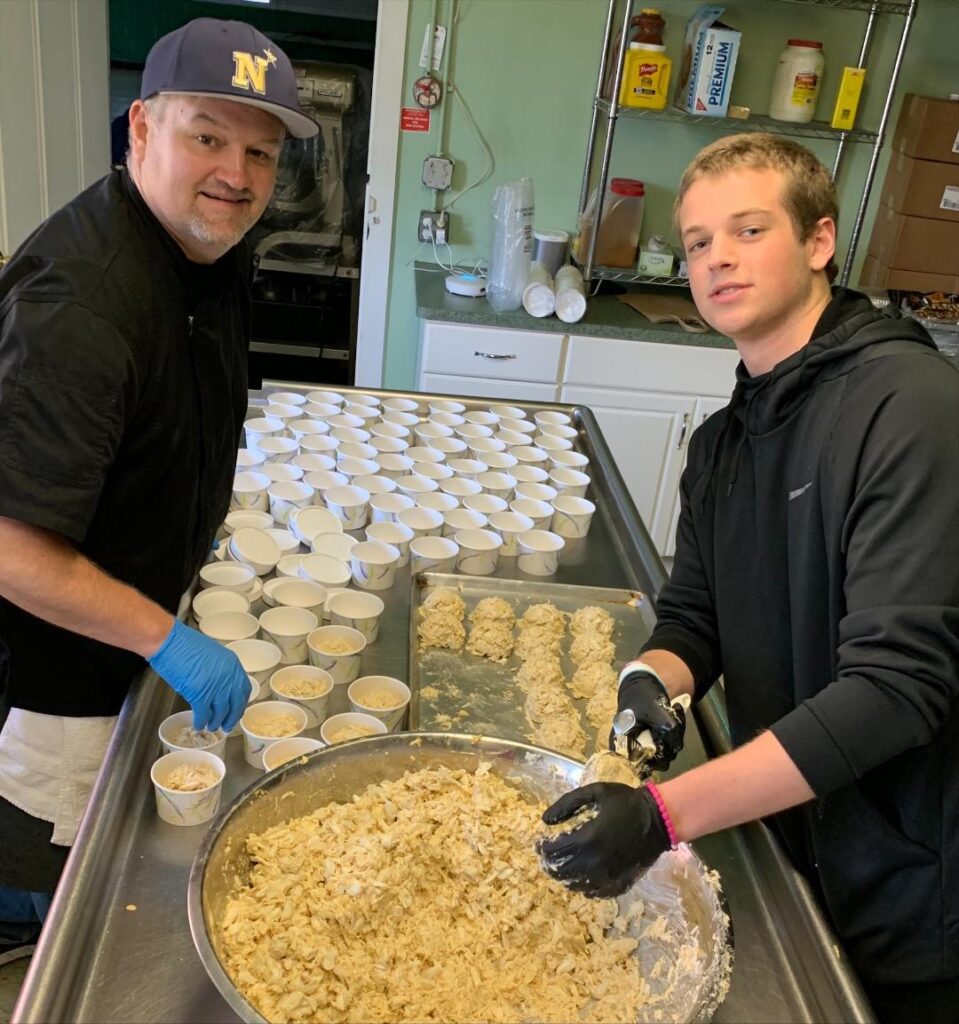
“Our business relies heavily on crab meat which was out of stock for some time,” he said. “Now that we can get crabmeat, it has more than doubled in price. We try to stay close to our original price but this situation has required us to raise our prices across the board.
While Sizzle Shack has an array of great menu items from pulled pork, Italian meatballs and Chicken Parm to sliders, Clint’s signature crab cakes are a customer favorite. They’re an item he feels he can’t do without.
Sizzle Shack takes online orders only with meal delivery service at www.thesizzleshack.com. You check out both businesses on Facebook and Instagram.
Non-food retailers have had to adjust and adapt to their own set of challenges. Heather Summers, owner of Park Home with husband Scott, said supply chain issues for stores like theirs have been happening for two years now.
“You won’t find any businesses who haven’t faced delays getting merchandise. Everything takes longer,” Summers said. “Likewise, price increases have been seen across every industry depending on the product and how it’s being transported.”
Thanks to the Summers’ practice of ordering beyond what they need for any given season, Park Home is fully stocked with furnishings and accessories geared to the coastal look.
Switching gears, we spoke with Mike McNealy, the owner of Severna Park Automotive which has had its own share of supply chain headaches.
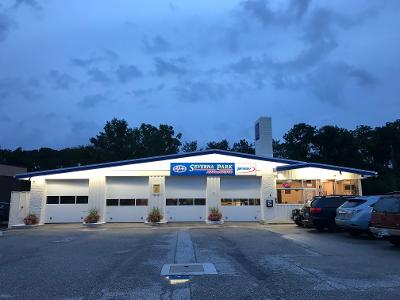
“There have been off-and-on disruptions, some of which were strange,” McNealy said. “At one time we couldn’t get a particular aerosol chemical called Brake Clean that’s used to clean bake parts because there was a can shortage. We also had to switch oil filter suppliers because the company we normally used was totally out of the line of filters we needed. Now we’re having trouble getting synthetic oils from some vendors. It’s especially hard to find 0W20. For quite a while it was hard to find window washer solvent.”
“The pricing for everything, across the board, has gone through the roof,” he added. ” The price of gas is high and the cost of most products has doubled. It’s definitely impacted us and we’ve had to adjust our prices. We can’t just absorb the costs without passing some of it along to the consumer.”
